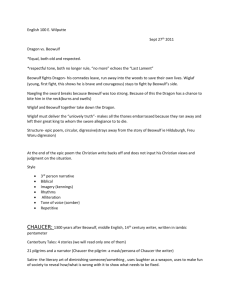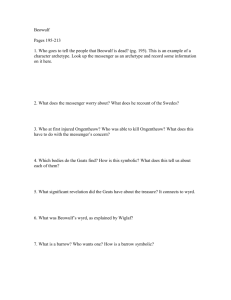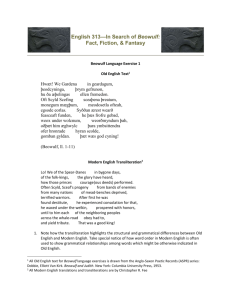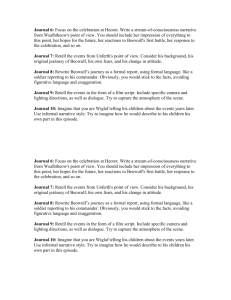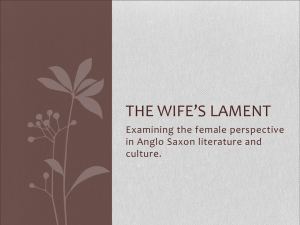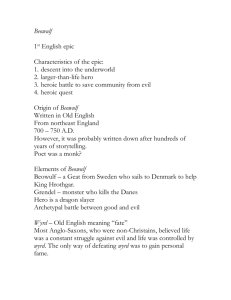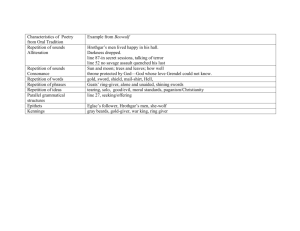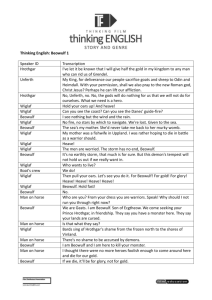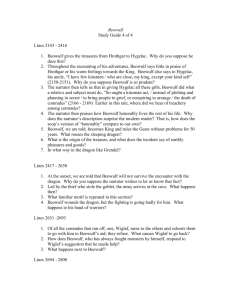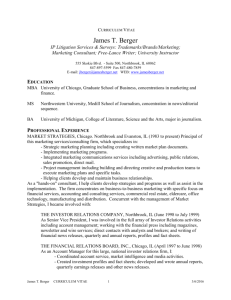SOAPSTONE for Wiglaf`s Speech in Beowulf (lines 2633
advertisement
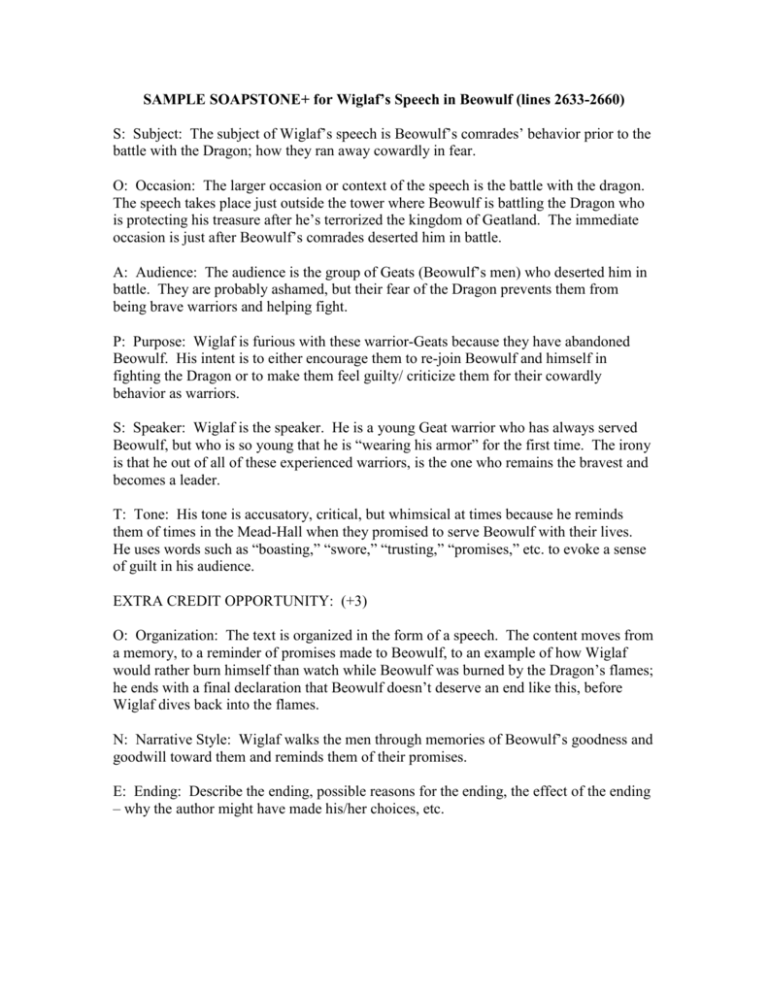
SAMPLE SOAPSTONE+ for Wiglaf’s Speech in Beowulf (lines 2633-2660) S: Subject: The subject of Wiglaf’s speech is Beowulf’s comrades’ behavior prior to the battle with the Dragon; how they ran away cowardly in fear. O: Occasion: The larger occasion or context of the speech is the battle with the dragon. The speech takes place just outside the tower where Beowulf is battling the Dragon who is protecting his treasure after he’s terrorized the kingdom of Geatland. The immediate occasion is just after Beowulf’s comrades deserted him in battle. A: Audience: The audience is the group of Geats (Beowulf’s men) who deserted him in battle. They are probably ashamed, but their fear of the Dragon prevents them from being brave warriors and helping fight. P: Purpose: Wiglaf is furious with these warrior-Geats because they have abandoned Beowulf. His intent is to either encourage them to re-join Beowulf and himself in fighting the Dragon or to make them feel guilty/ criticize them for their cowardly behavior as warriors. S: Speaker: Wiglaf is the speaker. He is a young Geat warrior who has always served Beowulf, but who is so young that he is “wearing his armor” for the first time. The irony is that he out of all of these experienced warriors, is the one who remains the bravest and becomes a leader. T: Tone: His tone is accusatory, critical, but whimsical at times because he reminds them of times in the Mead-Hall when they promised to serve Beowulf with their lives. He uses words such as “boasting,” “swore,” “trusting,” “promises,” etc. to evoke a sense of guilt in his audience. EXTRA CREDIT OPPORTUNITY: (+3) O: Organization: The text is organized in the form of a speech. The content moves from a memory, to a reminder of promises made to Beowulf, to an example of how Wiglaf would rather burn himself than watch while Beowulf was burned by the Dragon’s flames; he ends with a final declaration that Beowulf doesn’t deserve an end like this, before Wiglaf dives back into the flames. N: Narrative Style: Wiglaf walks the men through memories of Beowulf’s goodness and goodwill toward them and reminds them of their promises. E: Ending: Describe the ending, possible reasons for the ending, the effect of the ending – why the author might have made his/her choices, etc.

